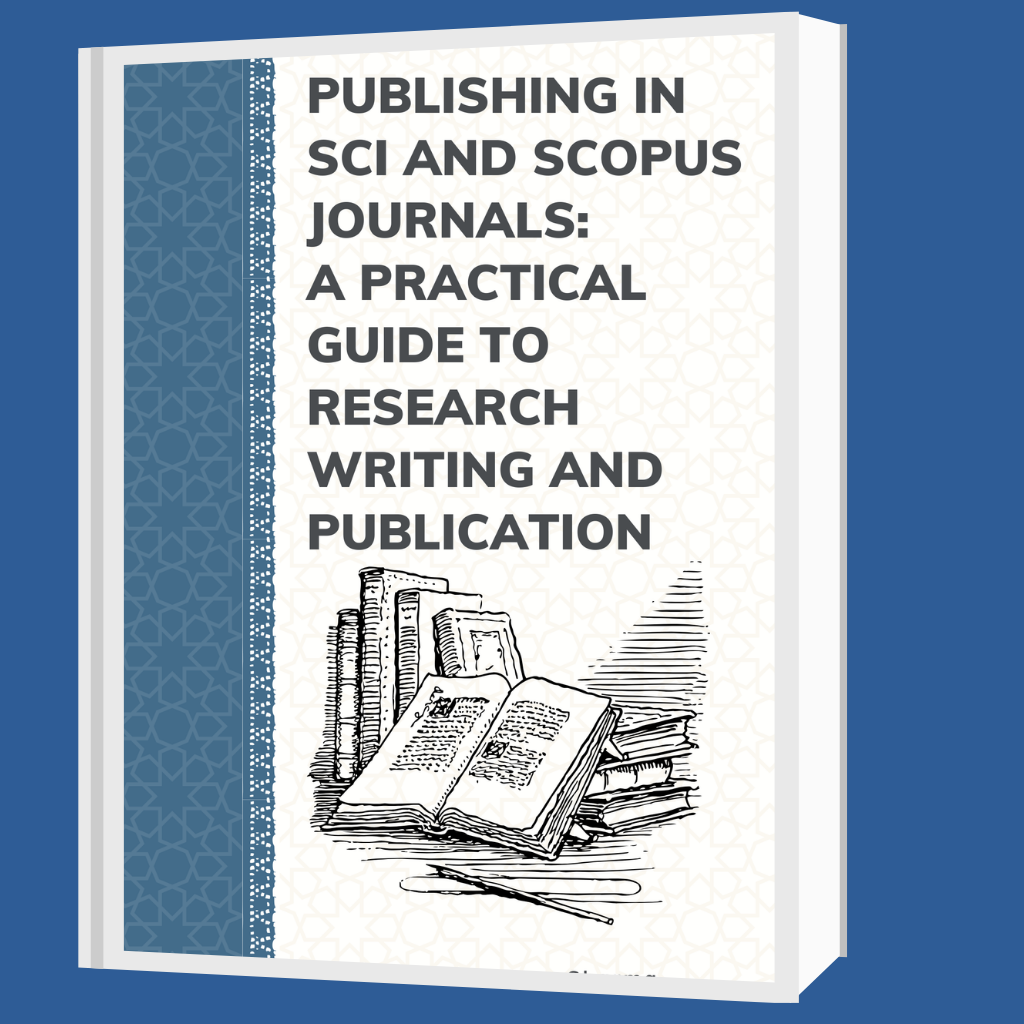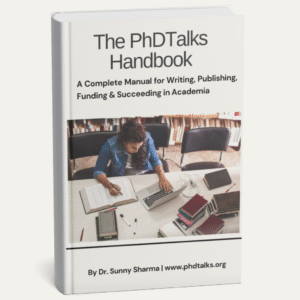Whether you’re aiming for Scopus-indexed, Web of Science (WoS), or trusted open-access journals, you’ve probably asked:
- How do I write a paper that journals actually accept?
- Where can I find legitimate, fast, and fee-free journals?
This eBook was created to answer those questions — and more — with clarity, strategy, and step-by-step guidance.
You’ll learn how to:
- Choose a research topic that aligns with current trends and funding priorities.
- Identify genuine Scopus and Web of Science journals using smart tools.
- Write every section of your paper (Title to Conclusion) using the IMRaD format.
- Navigate the submission process and respond to reviewers with confidence.
With examples, templates, and real-world advice, this book gives you everything your supervisor didn’t have time to explain.
It’s perfect for:
- PhD scholars writing their first journal paper
- Academics seeking visibility in Scopus/WoS-indexed journals
- Anyone who wants to publish ethically, efficiently, and impactfully
Table of Contents
PART I: Getting Started with Research Writing
Chapter 1: What Is a Research Paper and Why It Matters
- What a research paper is (with examples)
- Types of research papers
- Structure of a standard paper (IMRaD)
Chapter 2: Choosing a Research Topic and Identifying the Research Gap
- How to find a good topic
- Connecting with real-world problems and trends
- Spotting research gaps that matter
Chapter 3: Framing Research Questions, Objectives & Hypotheses
- Moving from topic to question
- Writing strong research objectives
- Formulating testable hypotheses
Chapter 4: Literature Review That Actually Helps Your Paper
- Where and how to search
- Synthesizing (not summarizing)
- Tools for organizing and citing literature
PART II: Writing the Research Paper
Chapter 5: Research Methodology — Keep It Clear and Defensible
- Choosing your approach (qualitative, quantitative, mixed)
- Sampling, tools, analysis, and ethics
Chapter 6: Writing Each Section of the Paper (IMRaD Made Simple)
- Title & Abstract
- Introduction
- Methodology
- Literature Review
- Results
- Discussion & Conclusion
- Referencing and citations
Chapter 7: Avoiding Plagiarism and Maintaining Research Integrity
- What counts as plagiarism
- How to avoid it (tools + tips)
- Ethical writing habits
PART III: Publishing and Visibility
Chapter 8: Choosing the Right Journal
- What to look for in a journal
- Indexing, predatory journals, and open access
- Tools to find journal matches
Chapter 9: Submitting Your Paper and Responding to Reviewers
- Cover letter basics
- What to expect in peer review
- Handling rejection & revisions professionally
Chapter 10: Promoting Your Research After Publication
- Building visibility: ORCID, Google Scholar, ResearchGate
- Using social media, blogs, and conferences to share your work
PART IV: Tools and Templates
Chapter 11: Essential Tools for Every Researcher
- Reference managers (Zotero, Mendeley)
- Writing assistants (Grammarly, ChatGPT)
- AI summarizers, citation tools, productivity aids


Abdul –
Useful for researchers for publications.
Dr. Shakeel –
These skills are indeed required for publication even in Scopus.